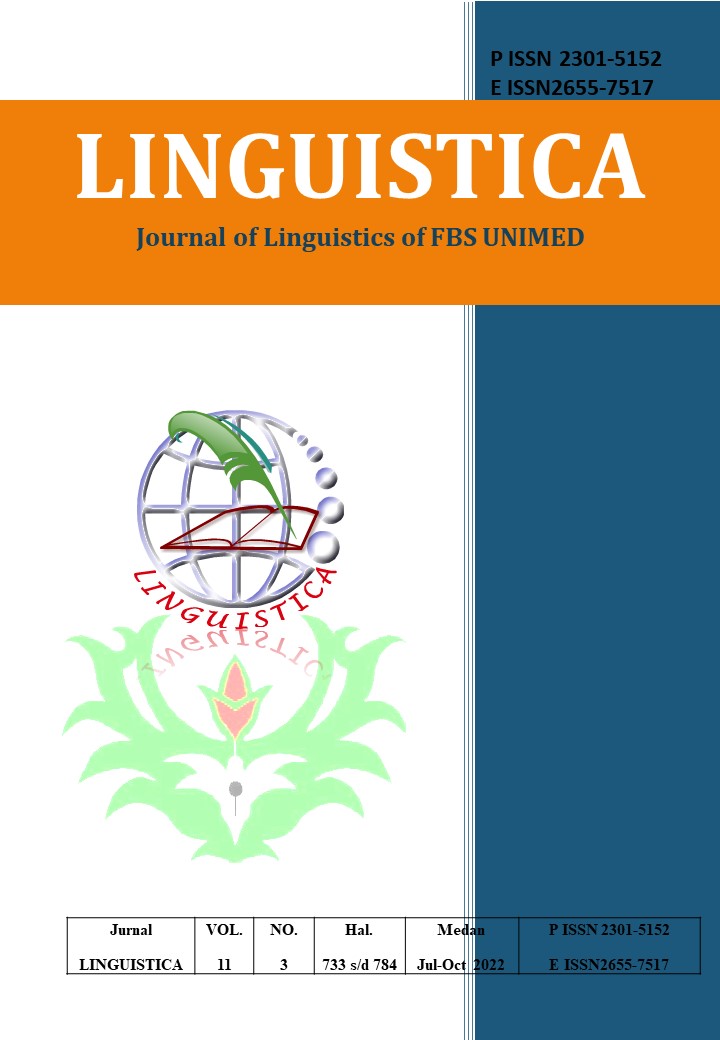SATIRE IN THE DAILY SHOW TWITTER ACCOUNT
DOI:
https://doi.org/10.24114/jalu.v11i3.39598Abstract
This study was conducted to uncover the aspects related to satire in The Daily Show Twitter account. The data of this research included 40 tweets selected during the 2020 US presidential election. The researcher used descriptive qualitative in analyzing the data. The data in this research were collected by using recorder technique and documentary sheet as the instrument to collect the data. The purpose of this study were (1) to find out the types of satire (2) to describe the realization of satire, and (3) to explain the reason for the use of satire. Based on the result of this study, there were three types of satire with the total of horatian 52,5%, juvenalian 17,5%, and manippean 30%. Besides, there were seven satirical techniques found in the tweets namely irony, paradox, antithesis, enlargement, anticlimax, exaggeration, and parody. Furthermore, satire in the tweets were used to be humorous, criticize politicians, and inform the audience about political topics.Downloads
Published
2022-11-01
Issue
Section
Articles
License
Copyright (c) 2022 YOGI ASRAF, SRI MINDA MURNI

This work is licensed under a Creative Commons Attribution-ShareAlike 4.0 International License.
Authors who publish with this journal agree to the following terms:
- Authors retain copyright and grant the journal the right of first publication with the work simultaneously licensed under a Creative Commons Attribution License that allows others to share the work with an acknowledgment of the work's authorship and initial publication in this journal.
- Authors are able to enter into separate, additional contractual arrangements for the non-exclusive distribution of the journal's published version of the work (e.g., post it to an institutional repository or publish it in a book), with an acknowledgment of its initial publication in this journal.
- Authors are permitted and encouraged to post their work online (e.g., in institutional repositories or on their website) prior to and during the submission process, as it can lead to productive exchanges, as well as earlier and greater citation of published work (See The Effect of Open Access).
- This work is licensed under a Creative Commons Attribution-ShareAlike 4.0 International License.

